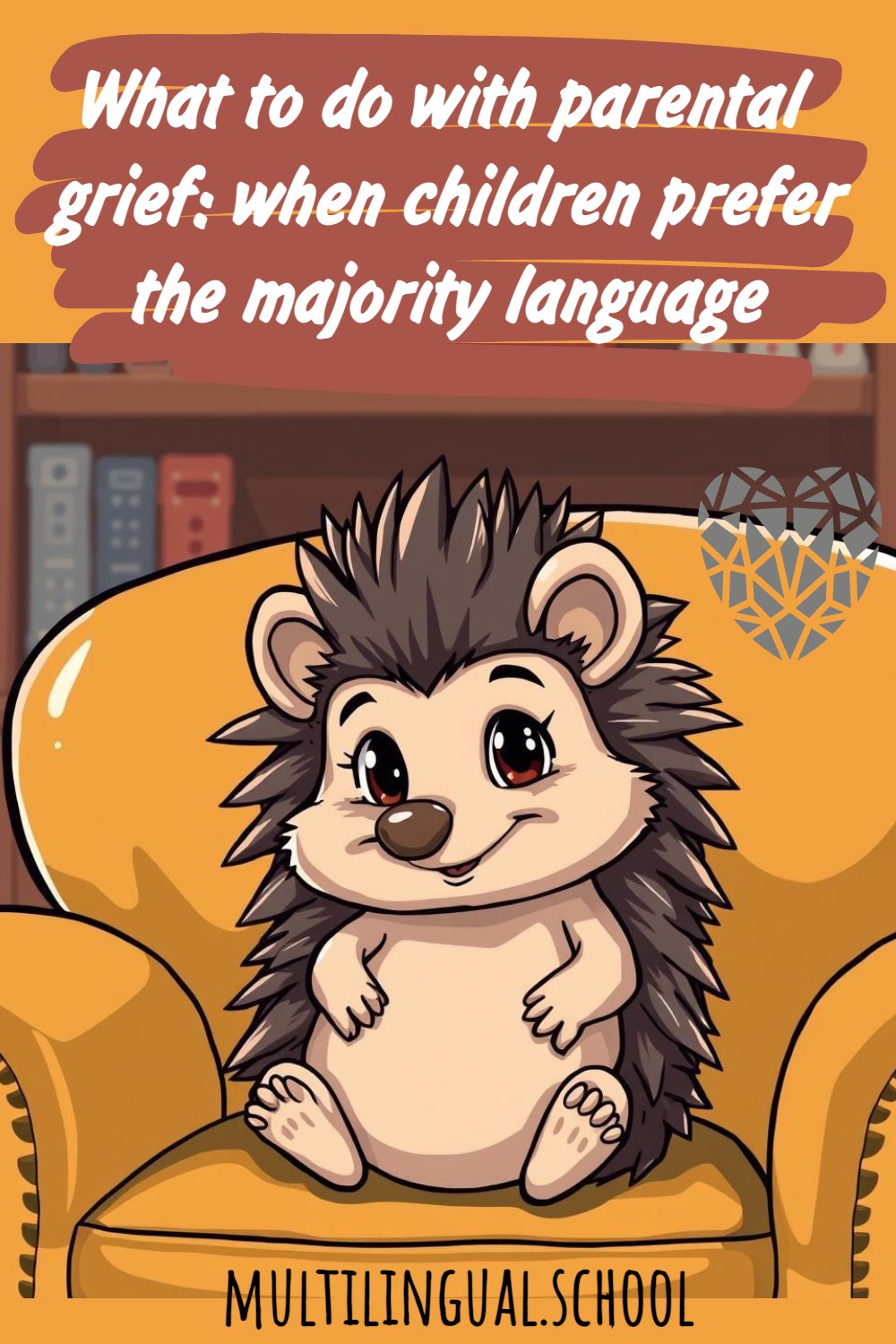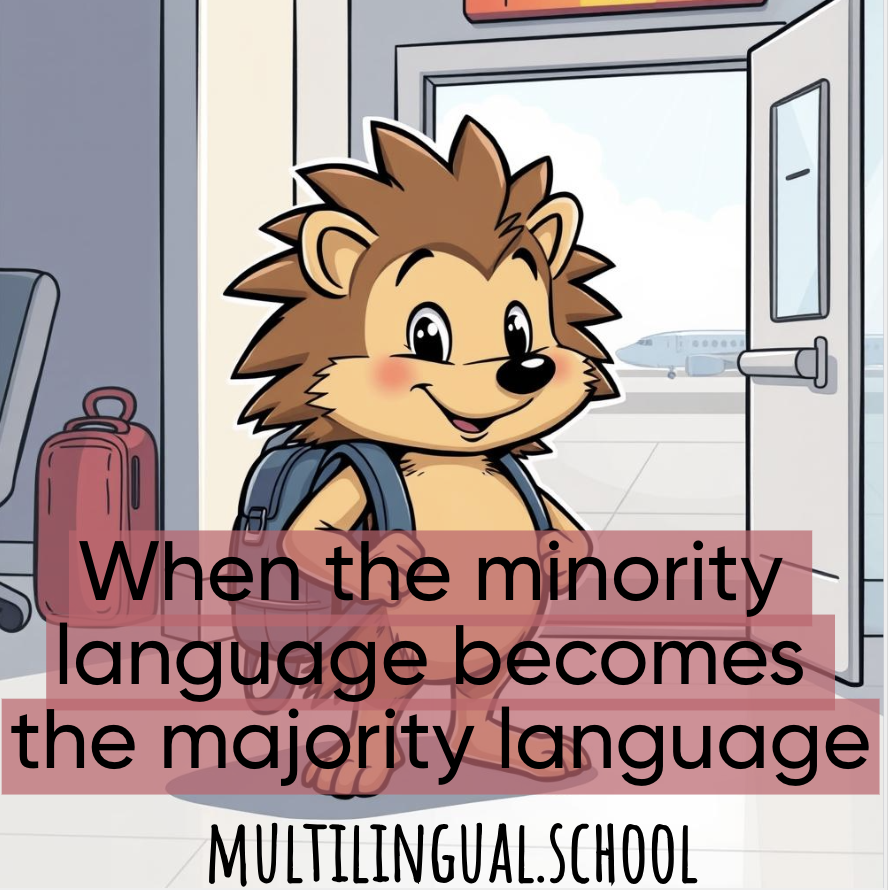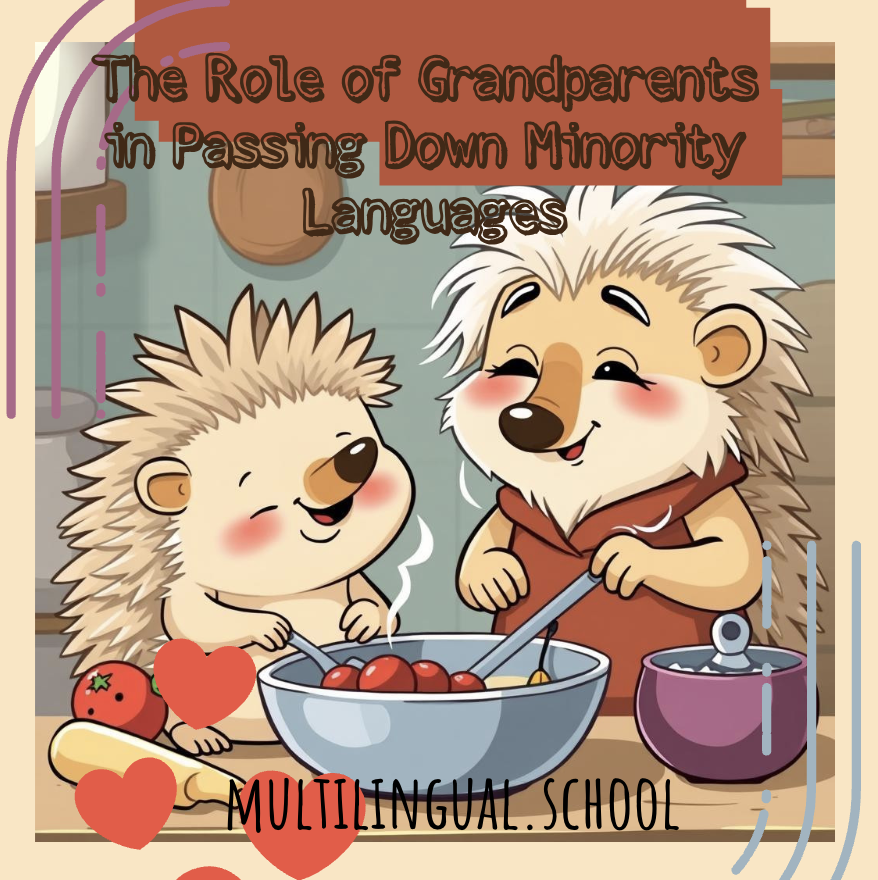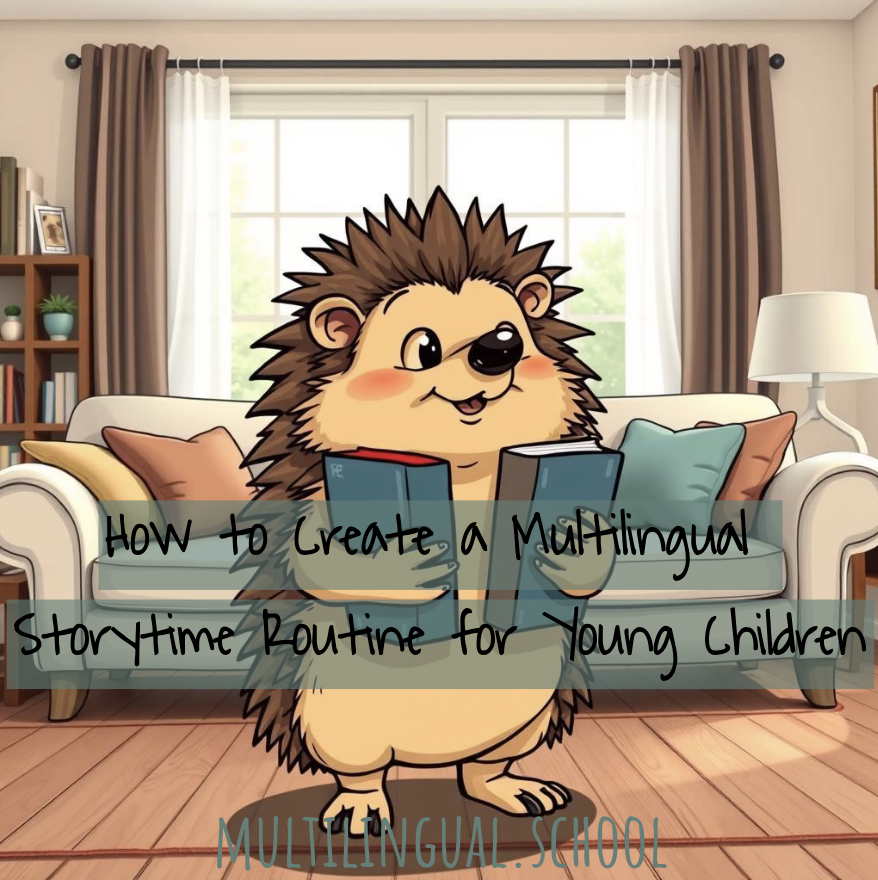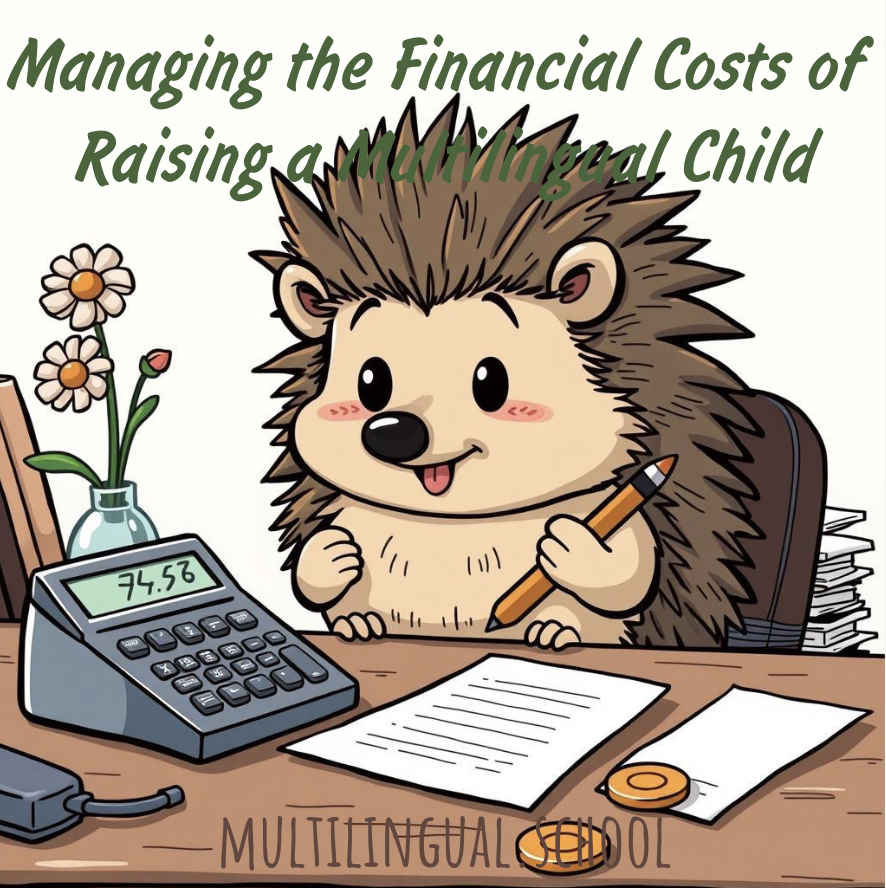Parent heartbreak when kids prefer the dominant local language over heritage ones
This post may contain affiliate links, which means that I may receive a commission if you make a purchase using these links. You do not pay a higher price.
How to deal with grief when children prefer the majority language
Raising multilingual children as an expat is a deeply personal and often emotional journey, and one of the most poignant pain points is the heartbreak parents feel when their children gravitate toward the dominant local language at the expense of their heritage languages. This phenomenon is rooted in a complex interplay of identity, connection, and practical realities—let’s unpack it.
For expat parents, heritage languages are more than just tools for communication; they’re lifelines to culture, family history, and a sense of belonging. These languages carry the stories of grandparents, the rhythms of traditional songs, and the intimacy of familial bonds that might span continents. When parents move abroad, they often envision passing this linguistic legacy to their children, imagining them chatting effortlessly with relatives back home or proudly identifying with their roots. But the reality of raising kids in an international setting can clash with that vision.
The dominant local language—whether it’s English in an international school, French in Paris, or Mandarin in Shanghai—holds immense sway. It’s the language of playgrounds, classrooms, and friendships. Kids, being adaptable and socially driven, naturally lean toward it because it’s the key to fitting in and navigating their immediate world. This shift can feel like a quiet rejection to parents. They might notice their child responding in the local language even when spoken to in the heritage tongue, or worse, struggling to express themselves in the language that ties them to their lineage. That moment—when a child hesitates over a word in their mother’s native language but rattles off sentences in the local one—can sting deeply.
This heartbreak isn’t just about language proficiency; it’s about what it symbolizes. Parents may feel they’re losing a piece of their identity in their children, or that the distance from their homeland is widening into an unbridgeable gap. For example, an Italian expat in Germany might ache when their child prefers German over Italian, not because German is “bad,” but because Italian is the sound of nonna’s kitchen and the lullabies of their own childhood. It’s a visceral sense of disconnection, compounded by guilt—did they not try hard enough to maintain it? Should they have stayed closer to “home”?
Practically, the dominance of the local language is tough to counter. Schools often prioritize it, peers reinforce it, and media saturates kids’ lives with it. Heritage languages, by contrast, might only get airtime at home or during sporadic visits to the ancestral country. Time and exposure work against parents, and kids—especially as they grow into tweens and teens—may even resist the “extra effort” of maintaining a language that feels less relevant to their daily lives. This can lead to tension: parents pushing for heritage language use might face eye rolls or outright refusal, turning what was meant to be a gift into a battleground.
The emotional toll is layered. There’s the sadness of watching a cherished part of their culture slip away, the fear that their kids might one day feel like strangers to their extended family, and the bittersweet pride in their adaptability to a new environment. Some parents describe it as a grieving process—mourning the multilingual dream they’d nurtured while trying to celebrate their child’s global identity.
This pain point is universal yet deeply personal. It’s not just about words; it’s about what those words hold—love, heritage, and a tether to a world left behind. For expats, the heartbreak comes from wanting their children to carry that world forward, only to see it quietly overshadowed by the one they’re growing up in.
Overcoming the heartache of watching your children favor the dominant local language over heritage ones as an expat parent is a delicate balance of acceptance, strategy, and self-compassion. While the emotional sting may never fully disappear, there are practical and mindset-focused ways to ease it, foster multilingualism, and strengthen your connection to your heritage through your kids. Here are some tips to help navigate this challenge:
1. Reframe the Narrative
Shift from loss to gain: Instead of seeing the preference for the local language as a rejection of your heritage, view it as a sign of your child’s adaptability and strength. They’re not losing their roots—they’re adding a new layer to their identity. Celebrate their bilingual or multilingual capabilities as a win, even if the balance isn’t what you’d hoped.
Focus on connection, not perfection: The goal isn’t flawless fluency in the heritage language—it’s maintaining a meaningful tie to it. A few words, phrases, or traditions kept alive can still carry deep cultural weight.
2. Make the Heritage Language Fun and Relevant
Incorporate play: Kids respond to enjoyment, not obligation. Use the heritage language in games, storytelling, or silly songs. For example, an Italian parent might invent a pizza-making game where ingredients are named only in Italian.
Leverage media: Find cartoons, books, or music in the heritage language that your kids already love. A Spanish-speaking parent could introduce “Coco” or “Bluey” dubbed in Spanish—familiarity makes it less of a chore.
Tie it to rewards: Plan a trip to the heritage country or a video call with grandparents where speaking the language unlocks special experiences. Kids are more motivated when they see a tangible payoff.
3. Create a Natural Environment for Use
Set “language zones”: Designate specific times or spaces where the heritage language rules—like dinner table conversations or bedtime stories. Consistency builds habits without feeling forced.
Involve others: If possible, connect with other expat families or local speakers of your heritage language for playdates or community events. Hearing it from peers can make it “cool” again.
Be the model: Speak it yourself as much as possible, even if your child responds in the local language. Exposure matters more than immediate reciprocation—kids absorb more than they let on.
4. Lean on Technology and Resources
Apps and tutors: Tools like Duolingo, Rosetta Stone, or online tutors can gamify learning and provide structure. A French expat might pair their kid with a tutor from Quebec for weekly chats.
Digital family ties: Regular video calls with relatives who only speak the heritage language can gently nudge kids to practice. Grandparents telling stories or teaching recipes can make it feel organic.
Record it: Create audio or video messages in the heritage language for your kids to revisit later—think of it as a time capsule of their roots.
5. Adjust Expectations and Celebrate Small Wins
Embrace asymmetry: It’s okay if your child’s skills are stronger in the local language. Even passive understanding (listening without speaking) keeps the heritage language alive in their brain for future activation.
Praise effort: When they use a heritage word or phrase, light up with excitement. Positive reinforcement beats nagging every time.
Let go of guilt: Recognize that language dominance is shaped by environment, not your parenting. You’re not failing—you’re giving them a global toolkit.
6. Build Cultural Pride Beyond Language
Food and traditions: Cook heritage dishes together or celebrate holidays with gusto. A Korean parent might make kimchi with their kids, weaving in Korean terms and stories.
Identity talks: Share what the language means to you—why it’s a treasure worth keeping. Kids might not get it now, but planting that seed can spark curiosity later.
Dual identity: Show them it’s not “either/or.” A child can be a German-speaking Berliner and a Hindi-speaking Indian—both are strengths.
7. Practice Self-Compassion
Acknowledge the heartache: It’s normal to feel sad. Journal about it, talk to fellow expats, or even cry it out—processing helps you move forward.
Trust the long game: Language skills can ebb and flow. Teens who reject a heritage language now might embrace it in adulthood when identity questions hit harder. You’re laying groundwork, not sealing fate.
Find your own anchor: Speak the language with friends, join a cultural club, or write in it. Keeping it alive for yourself can ease the pressure on your kids to “carry” it.
Real-World Example
Take a Brazilian expat in the U.S. whose kids prefer English. They might start with Saturday “samba mornings” (music and dance in Portuguese), use WhatsApp to chat with avó in Brazil, and cook feijoada while naming ingredients aloud. Over time, the kids might not be fluent, but “tudo bem” and “saudade” become part of their vocabulary—and their hearts.
Ultimately, overcoming the heartache means blending persistence with flexibility. You can’t control the dominance of the local language, but you can nurture the heritage one as a living, evolving gift. The heartbreak softens when you see your efforts ripple through in small, meaningful ways—proof that your roots still run deep, even if they’re spoken in a different accent.

